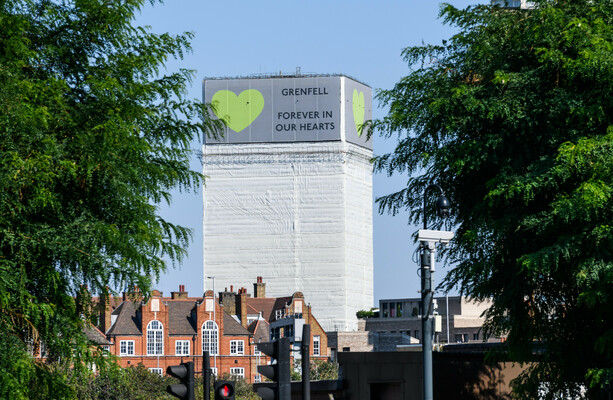Angela Rayner’s decision to demolish Grenfell Tower has sparked significant backlash, particularly from the families of the victims and the local community. The tower, which was the site of a devastating fire in June 2017 that claimed 72 lives, has become a symbol of the tragedy and the ongoing quest for justice and accountability.
the delay in the tower’s demolition is largely due to the community’s desire for a proper memorial. The Grenfell Tower Memorial Commission has been actively involved in designing a “sacred space” for reflection and remembrance, which considerably influences decisions about the tower’s future [2[2[2[2].
Critics argue that the decision to demolish the tower is premature and disrespectful to the memory of those who perished. Many families are still seeking answers and justice through the ongoing public inquiry, which has revealed a “total neglect of safety” at the heart of the disaster [3[3[3[3].
The announcement has been met with strong opposition, with some describing it as “disgraceful and unforgiveable” [4[4[4[4]. The families have expressed their anger and disappointment, feeling that the demolition talks are insensitive and premature Grenfell Tower Demolition: Family Backlash and Community Memorial Call
Table of Contents Senior Editor of world-today-news.com recently sat down wiht Dr. Victoria Smith, a leading expert on urban sociology and community resiliency, to discuss the recent backlash stemming from the decision to demolish Grenfell tower.Smith provides valuable insights into the issue,particularly concerning the ongoing quest for justice,memorial aspirations,and the significance of the tower for the affected community. Editor: Can you explain why the demolition of Grenfell Tower has stirred such important emotion and resistance among the victims’ families and community members? Victoria Smith: grenfell Tower isn’t just a structure; it’s a deeply symbolic monument to the tragedy and the quest for justice. For the families, the building holds significant emotional weight. It represents their lost loved ones and the failings that led to the disaster. To even discuss demolition at this point is seen as quite insensitive and premature. Editor: How does the need for justice and memorialization influence decisions about the tower’s future? Victoria Smith: The ongoing public inquiry has brought to light appalling neglect of safety measures, which has exacerbated the sense of injustice felt by the community.Many families are still seeking answers and accountability. Concurrently, the grenfell Tower Memorial Commission is working on creating a “sacred space” for reflection and remembrance. any decision about the tower’s future needs to consider these memorial aspirations and the broader context of justice and accountability. Editor: Could you delve deeper into how the community’s desire for a memorial affects the timeline for the tower’s demolition? Victoria Smith: Absolutely. the community’s desire for a proper memorial has considerably influenced the process. The Grenfell Tower Memorial Commission has been actively involved in designing a space for reflection and remembrance. This means that any discussions around demolition will have to be done with sensitivity and in consideration of the memorial plans, ensuring that both the need for justice and the respectful remembrance of victims are reconciled. Editor: Critics argue that demolishing Grenfell Tower would be a premature and disrespectful act. Can you provide your thoughts on this viewpoint? Victoria Smith: Yes, it’s a view shared by many. For the families and community, the tower represents the disaster’s ongoing impact. Demolishing it would feel as though the memory of the tragedy and the struggles for justice are being erased. It’s crucial that any steps taken involve careful consultation with the community to ensure that the process respects and honors the memory of those lost while also addressing the broader issues of justice and safety. Editor: How does the ongoing public inquiry affect the dynamics of this situation? Victoria Smith: The public inquiry is central to the narrative.It’s uncovering disturbing truths about the conduct leading up to the disaster, which only intensifies the demand for justice and accountability. The community and families are watching closely to make sure their voices are heard, and any decision to demolish the tower could be perceived as further disregard for their needs and the lessons from the inquiry. Editor: What are the key takeaways from this unfolding situation? Victoria Smith: The key takeaways are sensitivity, respect, and inclusion. The community’s voice must be at the forefront of any decision about the tower’s future. This isn’t just about a building; it’s about healing, justice, and the long-term memory of those affected. The process should focus on reconciliation, ensuring that lessons are learned and that justice and remembrance coexist harmoniously.The Symbolic Significance of Grenfell Tower
The Quest for Justice and Memorialization
The Community’s Desire for a Memorial
The Memorial Shouldn’t Mean Erasing the Past
The Ongoing Public Inquiry
Concluding Thoughts

